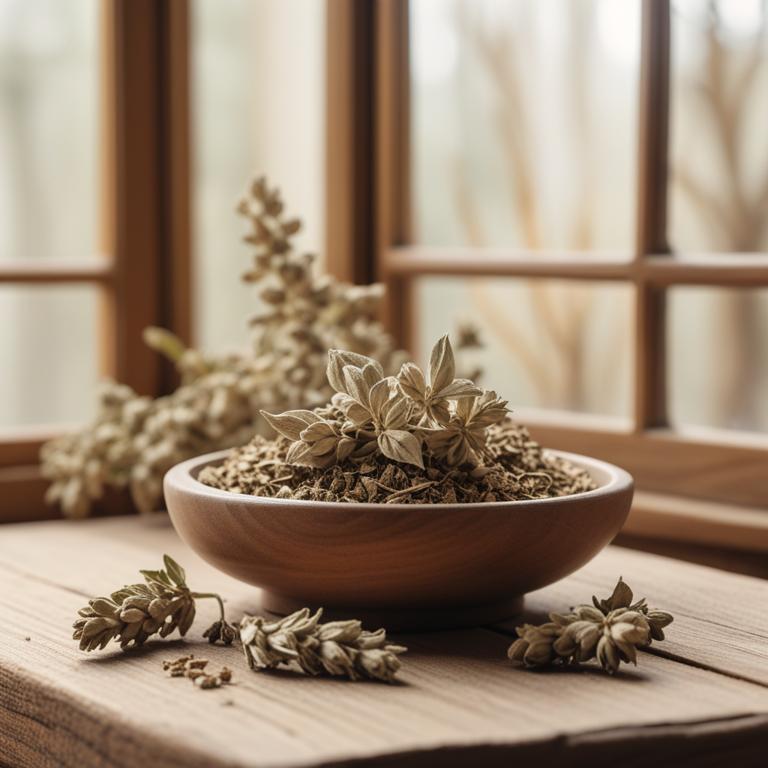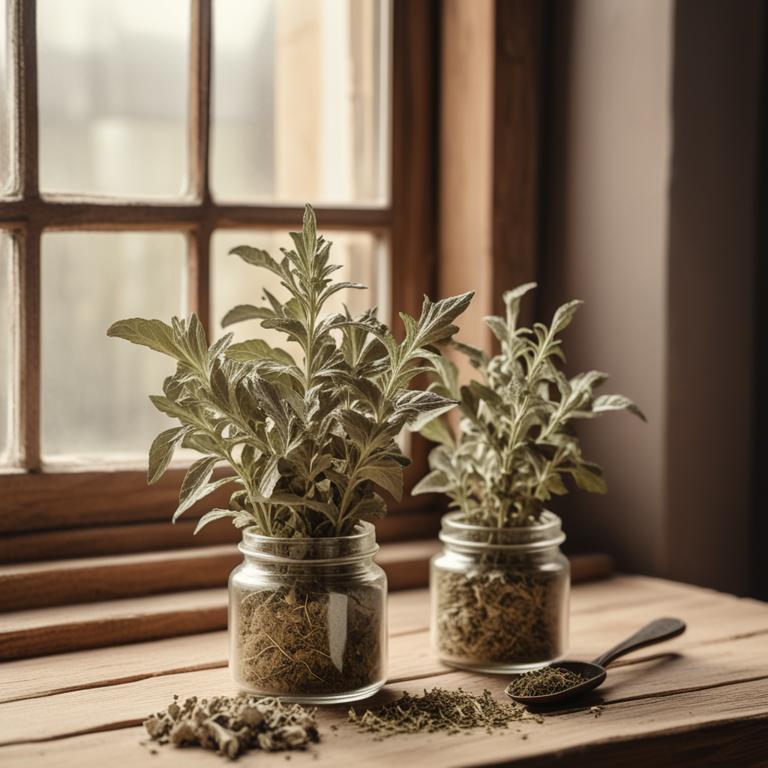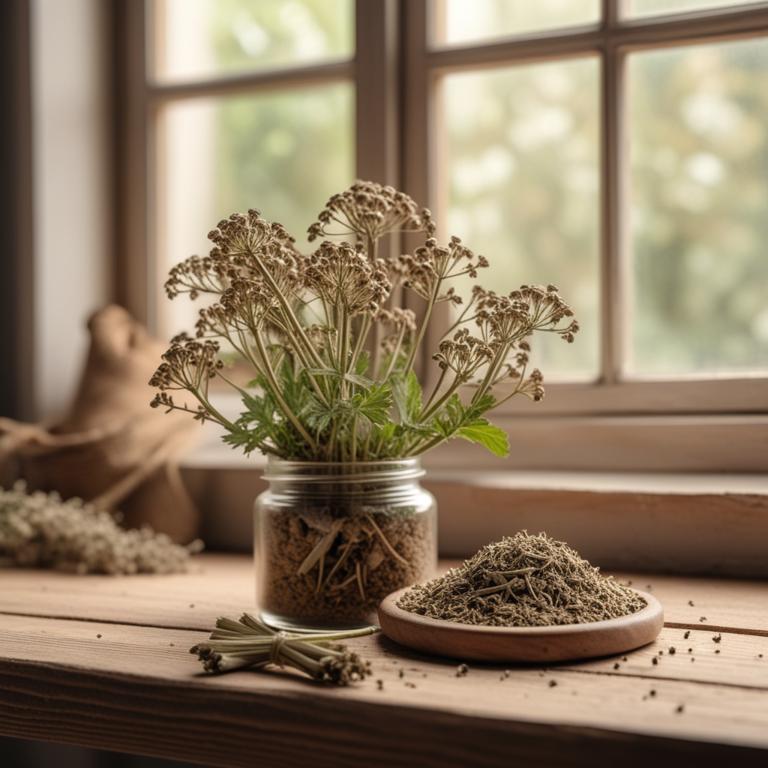Updated: Dec 1, 2024
Palpitation: Understanding Its Causes and Natural Medicinal Herbs
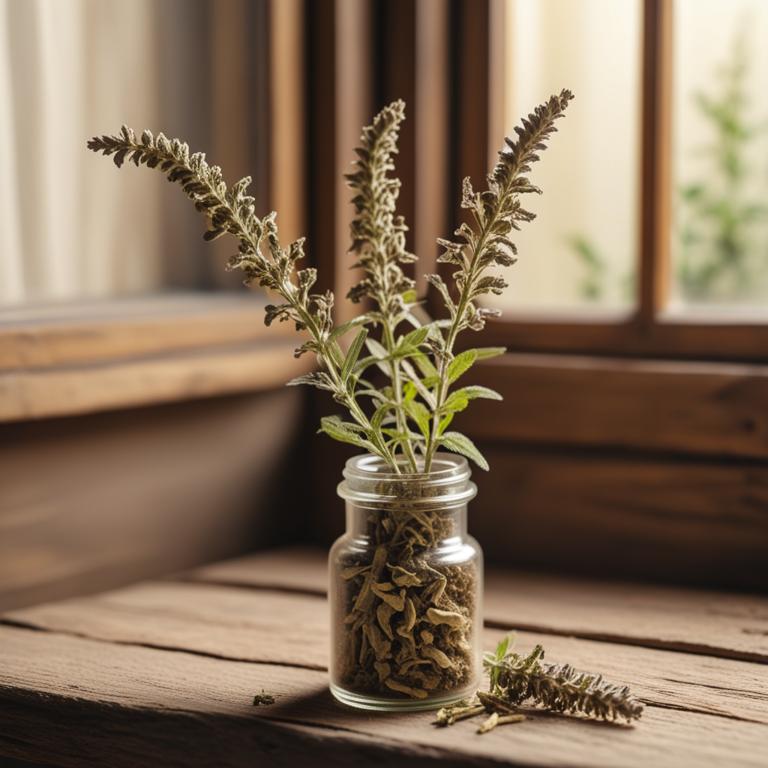
Palpitations are sudden, irregular heartbeats that can be alarming and disrupt your daily life.
They can make you feel anxious, worried, and even fearful for your health. But what causes them?. Palpitations can be triggered by stress, anxiety, caffeine, nicotine, and certain medications. They can also be a sign of an underlying condition, such as an irregular heartbeat, high blood pressure, or an overactive thyroid gland. To address palpitations, herbal remedies offer a natural and gentle approach. Herbs like passionflower and valerian root have a calming effect on the nervous system, helping to reduce anxiety and stress that can contribute to palpitations.
These herbs can be consumed as teas, infusions, or even taken in capsule form. The leaves of the ashwagandha plant are also known to help regulate heartbeats and reduce stress. Drinking a tea made from these leaves can help calm the nervous system and promote a sense of balance. Some herbal preparations specifically designed to address palpitations include a tea blend of passionflower, valerian root, and lemon balm. This soothing tea can be sipped before bed to calm the nervous system and promote a restful night's sleep. Another option is a capsule supplement made from ashwagandha root, which can be taken daily to help regulate heartbeats and reduce stress.
By incorporating these herbal remedies into your daily routine, you may find relief from palpitations and a greater sense of calm and well-being.
Table of Contents
What are the underlying causes of palpitation?
The main causes of palpitation are a mix of physical and emotional factors.
Anxiety is a common cause of palpitation, as it can trigger the release of stress hormones like adrenaline, which can speed up heart rate and cause irregular beats. Hypertension, or high blood pressure, can also lead to palpitation, as the heart works harder to pump blood, causing it to beat irregularly.
Hyperthyroidism, a condition where the thyroid gland produces too much thyroid hormone, can cause palpitation due to an overactive metabolism that can lead to increased heart rate. Dehydration can cause palpitation, as the body's need for oxygen and nutrients increases, putting extra pressure on the heart.
Caffeine and nicotine can also cause palpitation, as they are stimulants that can increase heart rate and blood pressure, making the heart work harder to pump blood.
What are the positive effects of using herbs for palpitation?
Using herbs for palpitations can be very beneficial.
These natural remedies can help slow down a rapid heartbeat and reduce feelings of anxiety and stress. They can also help lower blood pressure, which is often a cause of palpitations.
Some herbs have anti-inflammatory properties, which can reduce swelling in the heart and improve its functioning. Additionally, certain herbs have a calming effect on the nervous system, helping to regulate heart rate and reduce symptoms of palpitations. They can also help improve sleep quality, which is often disrupted by palpitations.
By using these herbs, people can find relief from symptoms and improve their overall well-being.
Which medicinal herbs are effective for palpitation?
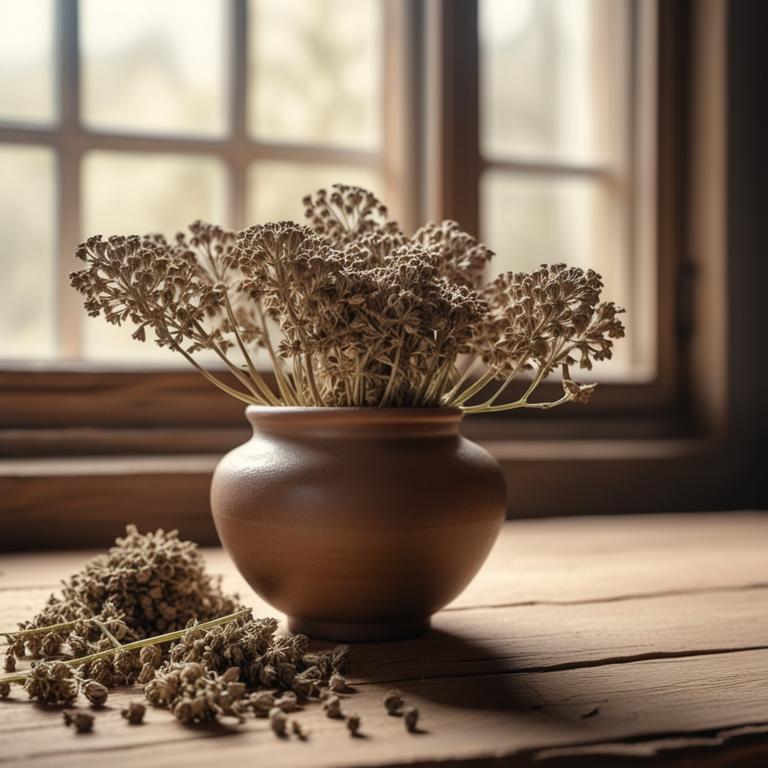
If you experience palpitations, or irregular heartbeats, you may want to consider trying some herbal remedies that can help calm your heart and reduce anxiety.
One of the most well-known herbs for palpitations is Valeriana officinalis, or valerian root. This herb has been used for centuries to calm the nervous system and promote relaxation. It helps slow down your heart rate and reduce anxiety, making it easier to fall asleep and stay asleep. Another herb that can help with palpitations is Passiflora incarnata, or passionflower. This herb has a soothing effect on the nervous system and can help reduce anxiety and stress. It can also help regulate your heartbeat and calm your mind. Ginger, or Zingiber officinale, is another herb that can help with palpitations.
Ginger has anti-inflammatory properties that can help reduce inflammation in the body, which can contribute to palpitations. It can also help regulate your digestion and reduce nausea, which can be a symptom of palpitations. Avena sativa, or oat straw, is a natural sedative that can help calm your nervous system and promote relaxation. It can help reduce anxiety and stress, and promote a good night's sleep. Finally, Panax ginseng, or Asian ginseng, can help with palpitations by reducing stress and anxiety. It can also help improve circulation and regulate your heartbeat. However, be careful when using ginseng, as it can interact with certain medications and have side effects. It's essential to note that while these herbs can be beneficial for palpitations, they should not be used as a replacement for medical treatment.
If you experience frequent or severe palpitations, you should consult with a healthcare professional for proper diagnosis and treatment.
What are the herbal medications most often used for palpitation?

Herbal preparations can be very helpful in managing palpitations.
One way is with a tincture, which is a concentrated liquid extract of the herb. Tinctures are good because they work quickly and can be taken in small amounts, making them easy to use. For example, passionflower tincture is known to calm the nervous system and reduce anxiety, which can contribute to palpitations. Another way is with a decoction, which is a liquid extract made by boiling the herb in water. Decoctions are good because they bring out the deeper properties of the herb and can be more effective than other preparations. For instance, hawthorn decoction is often used to support heart health and can help regulate palpitations. Herbal infusions are also helpful, which are made by steeping the herb in hot water.
Infusions are good because they are gentle on the stomach and can be used as a daily preventative measure. For example, peppermint infusion can help calm the nervous system and reduce stress, which can contribute to palpitations. Herbal capsules are another option, which contain dried and powdered herb. Capsules are good because they are easy to take and can be a convenient way to get the benefits of the herb. For instance, lavender capsules can help promote relaxation and reduce anxiety, which can contribute to palpitations. Finally, herbal teas are a popular choice for managing palpitations. Teas are good because they are easy to make and can be enjoyed hot or cold. For example, chamomile tea can help calm the nervous system and reduce stress, which can contribute to palpitations.
These herbal preparations can be used alone or in combination with other treatments to help manage palpitations.
Additional Resources:
What herbs can cause problems if you have palpitation?
If you experience palpitations, it's crucial to be careful with certain herbs that can trigger or worsen this condition.
Ephedra sinica, also known as ma huang, contains ephedrine, a stimulant that can increase heart rate and blood pressure, making palpitations worse. Catha edulis, or khat, has similar effects, as it also contains stimulants that can elevate heart rate and cause anxiety.
Pausinystalia johimbe, or yohimbine, is another herb that can raise heart rate and blood pressure, making it a potential trigger for palpitations. Cinchona officinalis, or Peruvian bark, contains quinine, which can be toxic in high amounts and cause heart problems, including palpitations. Ginkgo biloba, while often used to improve blood flow, can have the opposite effect in people with certain heart conditions, including those who experience palpitations.
When taken in large amounts or combined with other herbs, these plants can amplify their negative effects and worsen palpitations.
FAQ
Are there any specific herbs that can prevent palpitation?
Some herbs like ashwagandha and holy basil may help calm the nervous system and reduce palpitations.
They have been used in traditional medicine for centuries to ease anxiety and stress.
Ashwagandha is believed to balance body chemicals, while holy basil is thought to calm the mind and body.
Is it safe to use herbal remedies for palpitation during pregnancy?
Herbal remedies for palpitations during pregnancy are not recommended.
Many of these herbs can be harmful to the mother and the developing fetus. For example, some herbs can lower blood pressure or interact with medications, which can cause problems.
It's best to stick with what your body needs during pregnancy, and that's medical care.
Are there any herbs that can reduce the frequency of palpitation?
Some herbs like ashwagandha and ginger may help reduce palpitations.
Ashwagandha, an adaptogen, can calm the body and mind, while ginger has natural anti-inflammatory properties that may ease heart rate irregularities.
These herbs have been traditionally used to promote relaxation and reduce stress, which can contribute to palpitations.
Can i combine different herbal remedies for palpitation?
Combining herbal remedies for palpitation can be tricky.
Some herbs, like passionflower and lemon balm, have a calming effect, while others, like ginkgo biloba and hawthorn, can help improve circulation. Use them together carefully, as excessive combinations can interact or worsen symptoms.
Start with small amounts and monitor your body's response.
Related Articles
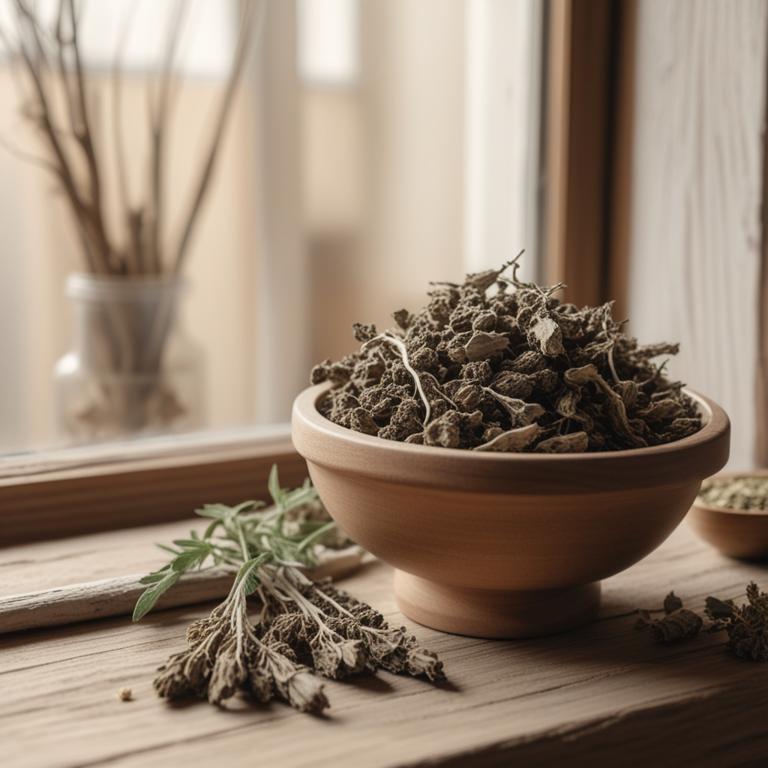
Peripheral Arterial Occlusive Disease: Natural Remedies and Herbal Preparations
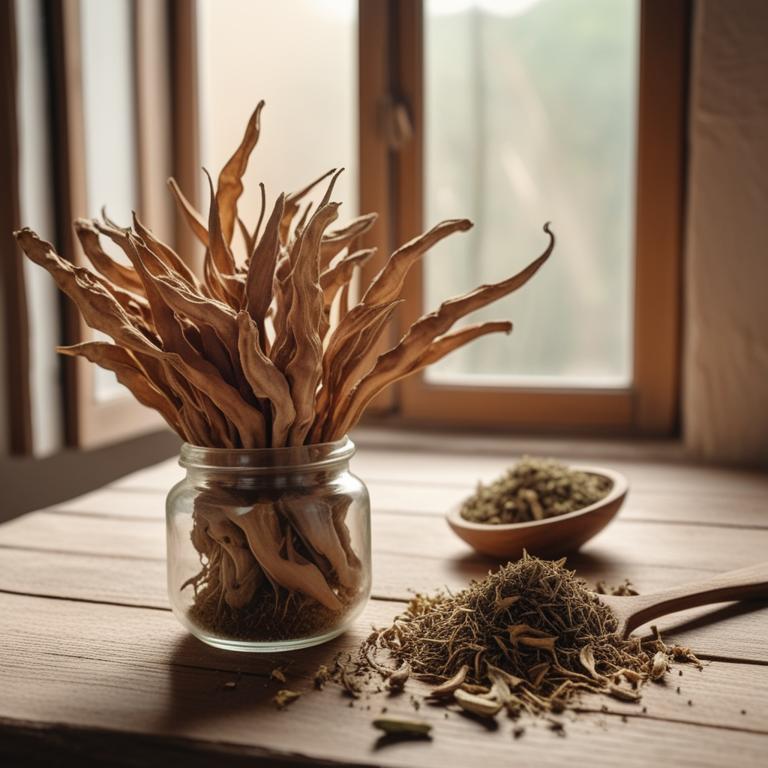
Gum Infection Causes and Medicinal Herbs for Natural Relief
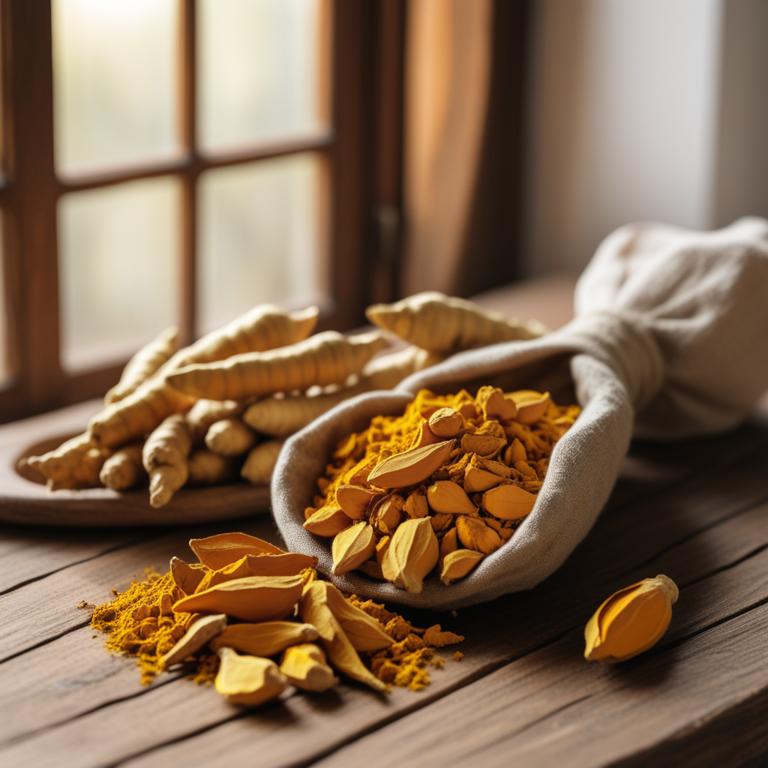
Arteriosclerosis: Unlocking Causes and Herbal Treatment Options
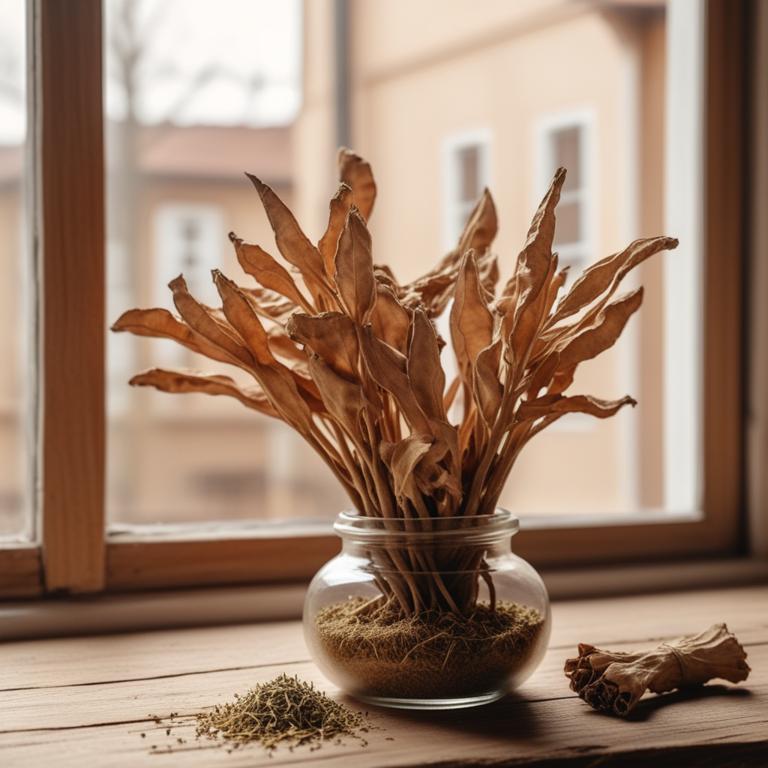
Angina and Herbal Medicine: Causes, Medicinal Herbs, and Preparations
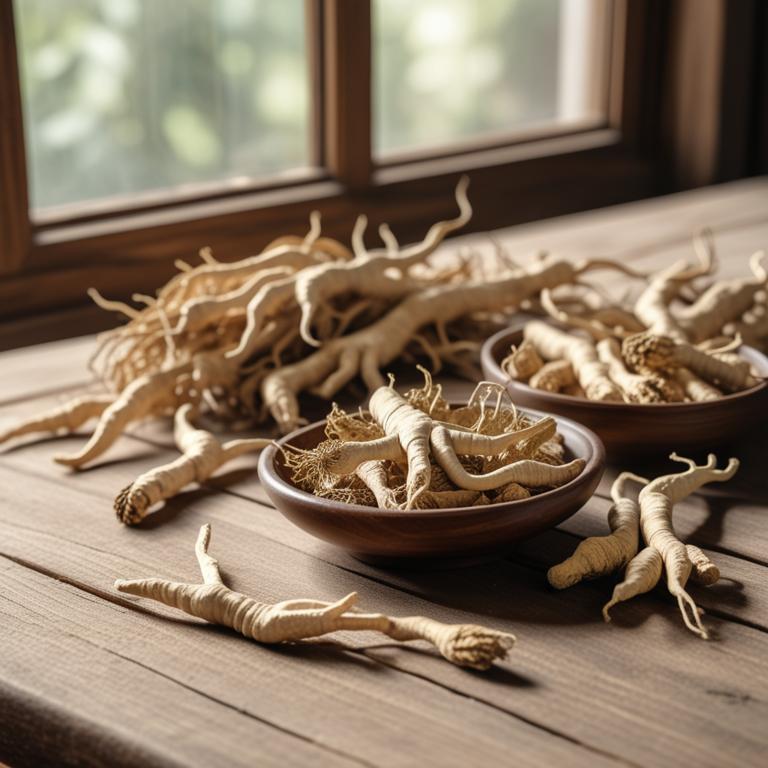
Overcoming Low Blood Pressure: Causes, Herbal Remedies, and Effective Preparations
